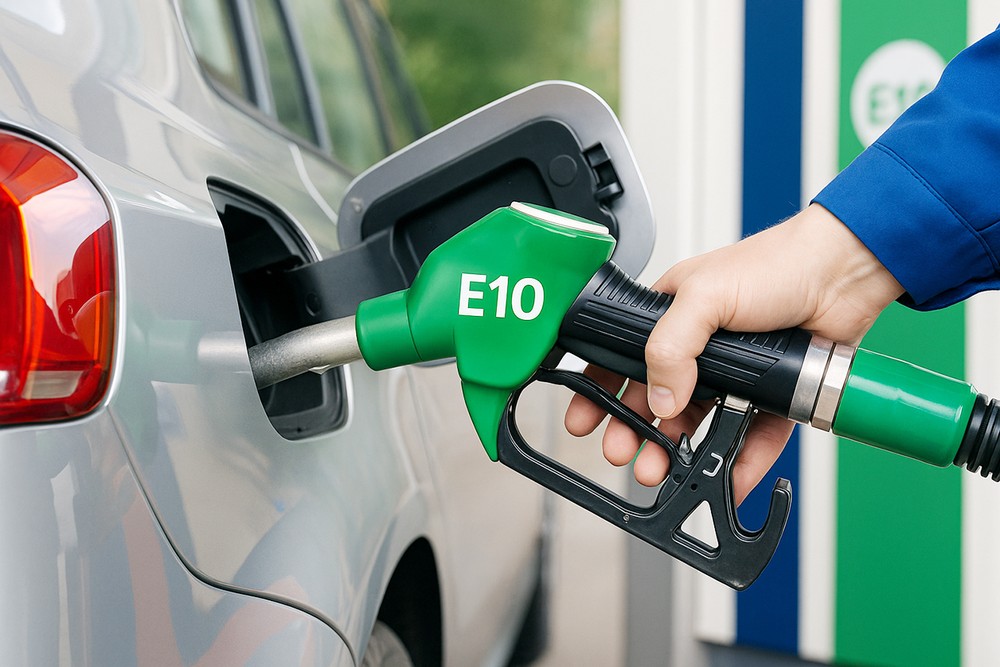
This will begin with a pilot program in Ho Chi Minh City on August 1, 2025, leading to a nationwide mandate on January 1, 2026.
Vietnam is taking a major step toward its 2050 carbon neutrality commitment and emissions reduction roadmap by pushing for wider E10 biofuel use. A reporter from SGGP Newspaper discussed this initiative with Deputy Director Dao Duy Anh of the Department of Innovation, Green Transformation, and Industrial Promotion. His department is leading the research and policy proposals for E10 implementation, under the guidance of the Minister of Industry and Trade.
The push for E10 isn't entirely new as the Vietnamese Prime Minister issued the Decision No. 53/2012/QD-TTg in 2012 on an initial roadmap for blending biofuels. Studies consistently shows that mixing bioethanol with gasoline significantly cuts down on greenhouse gas emissions from vehicles, with the reduction proportional to the ethanol content. Building on this, the Ministry is now crafting a new roadmap to replace the 2012 decision. The goal is clear that nationwide E10 supply and use starting January 1, 2026.
As part of this transition, Petrolimex plans to kick off pilot blending and supplying E10 in Ho Chi Minh City starting August 1, 2025.
While Vietnam has six ethanol plants with a combined capacity of approximately 500,000 cubic meters per year, only two are currently operational, producing around 100,000 cubic meters annually. This underutilization is largely due to the slow uptake of E100 ethanol in the past, making production inefficient.
Looking ahead, the country will need a substantial increase in ethanol supply approximately 1.2–1.5 million cubic meters, once E10 demand rises in line with the new roadmap. Initially, Vietnam expects to import the majority of this ethanol. However, the long-term strategy involves achieving self-sufficiency by reactivating idle ethanol plants and gradually establishing new production facilities.
For Vietnam's domestic ethanol industry to truly flourish and compete with imports, Dr. Dao Duy Anh emphasizes the need for a comprehensive and synchronized policy framework. This includes robust support mechanisms, incentives for domestic production, and the adoption of modern technology, high-performance equipment and efficient business management to drive down costs.

Successfully implementing the E10 roadmap requires a collaborative effort from the entire political system, businesses, and consumers. Critically, it is necessary to simultaneously address existing 'bottlenecks' related to mechanisms, policies, infrastructure for storage, blending, transportation, and distribution. Effective communication campaigns are also essential to raise awareness and provide accurate information about biofuels.
Promoting biofuel use perfectly aligns with Vietnam's development goals and global trends. Deputy Director General Dao Duy Anh highlights that achieving this requires multifaceted support, from encouraging domestic production through modern technology and efficient practices to creating an environment where local ethanol can compete with imports.
This ambitious plan hinges on the active participation of the Government, businesses, and the public. It's crucial to resolve current challenges concerning regulations, infrastructure for storage and distribution, and public awareness. Years of technical testing and real-world application in Vietnam and globally have consistently shown that ethanol-blended gasoline does not negatively impact engine performance or lifespan.
Ultimately, from policymakers to businesses and society at large, there's a shared understanding: transitioning all transportation fuels to E10 biofuel and phasing out mineral gasoline is essential for a cleaner living environment.
























